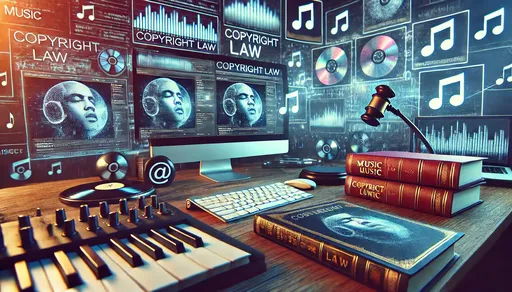Music Torrents and Copyright Law: What You Need to Know

In the digital age, the convenience of downloading music through torrents has become a common practice. However, while music torrents offer easy access to a vast array of songs and albums, they also present significant legal implications. Understanding the interplay between music torrents and copyright law is essential for anyone engaging in this activity.
The Basics of Copyright Law
Copyright law protects the rights of creators by giving them exclusive control over the reproduction, distribution, and public performance of their works. When a song or an album is created, copyright automatically vests in the creator, typically lasting for the life of the author plus 70 years in most jurisdictions. This legal protection means that unauthorized copying or distribution, such as through torrents, is a violation of the copyright holder's rights.
Legal Risks of Downloading Music Torrents
Downloading music without permission from music torrents can lead to severe legal consequences. Copyright infringement can result in hefty fines and even criminal charges in severe cases. Many countries have implemented strict measures to curb piracy, which include tracking downloads and penalizing offenders.
The Role of ISPs in Copyright Enforcement
Internet Service Providers (ISPs) play a crucial role in enforcing copyright laws. Under regulations like the Digital Millennium Copyright Act (DMCA) in the United States, ISPs are required to take action against users who repeatedly violate copyright laws. This may include throttling internet speeds, issuing warnings, or ultimately, terminating service.
Safe and Legal Alternatives
Fortunately, there are many legal alternatives to downloading music torrents. Numerous online platforms offer free or subscription-based access to vast music libraries legally. These services ensure that artists are compensated for their work, while also providing users with the peace of mind that they are not violating copyright laws.
The Future of Music Torrents and Copyright Law
As technology evolves, so does the landscape of music piracy and copyright enforcement. New methods of tracking and enforcing copyright laws are continually being developed. At the same time, the music industry is adapting by offering more flexible and affordable legal music services, which may eventually reduce the reliance on torrents for music access.
In conclusion, while music torrents might seem like a convenient way to access music, they carry significant legal risks that are important to understand. Adhering to copyright laws and supporting legal music services not only aids in respecting the rights of creators but also ensures that one's music listening habits remain within the bounds of the law.
Please specify source if reproducedMusic Torrents and Copyright Law: What You Need to Know | Top Torrent Web for Music Torrents



